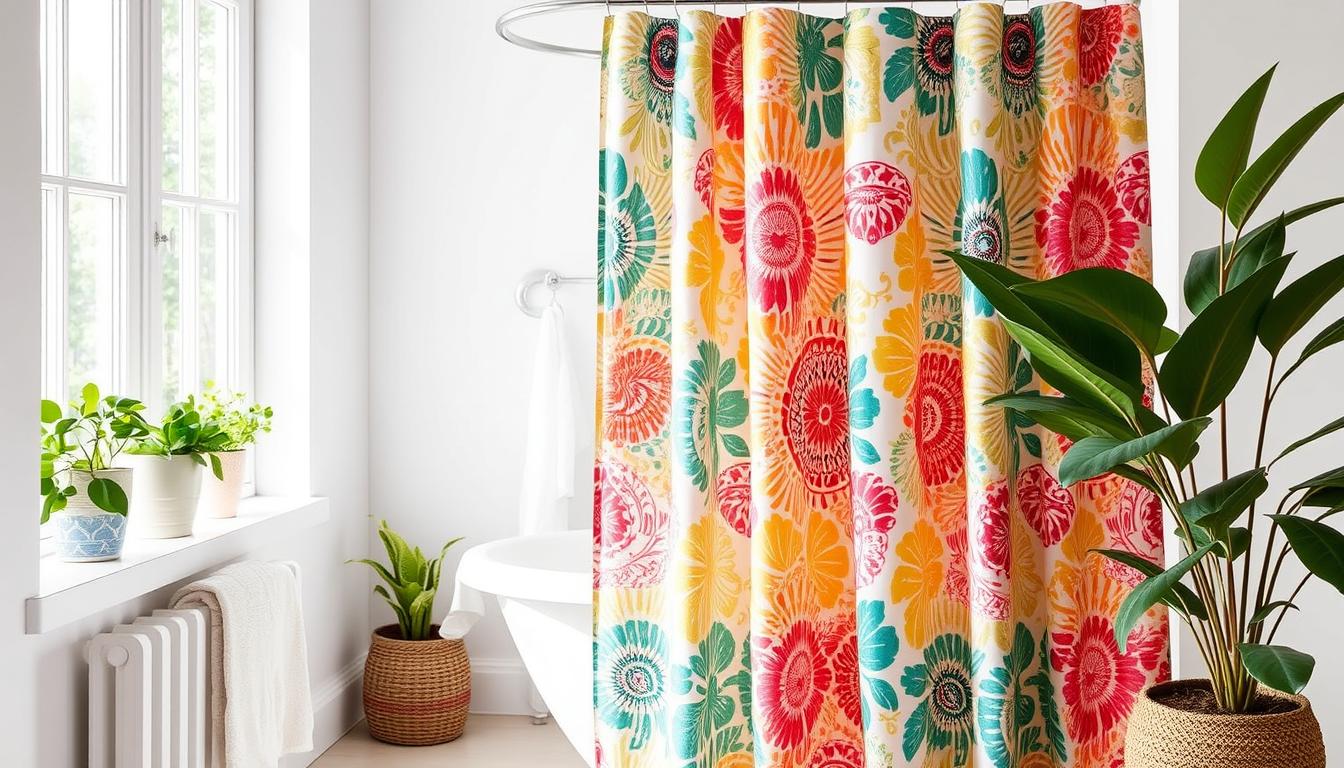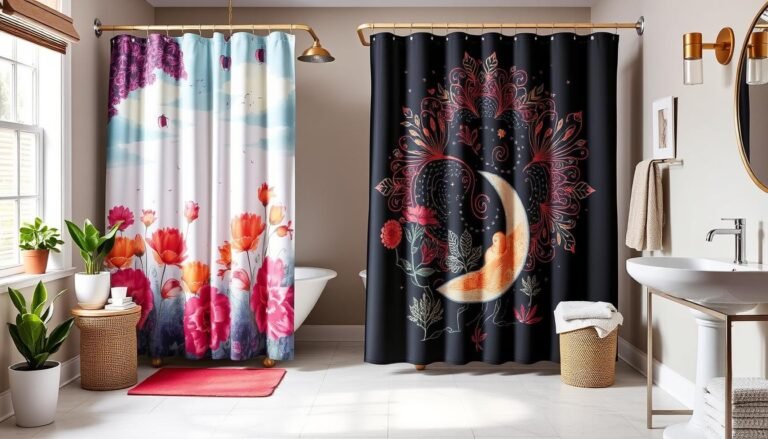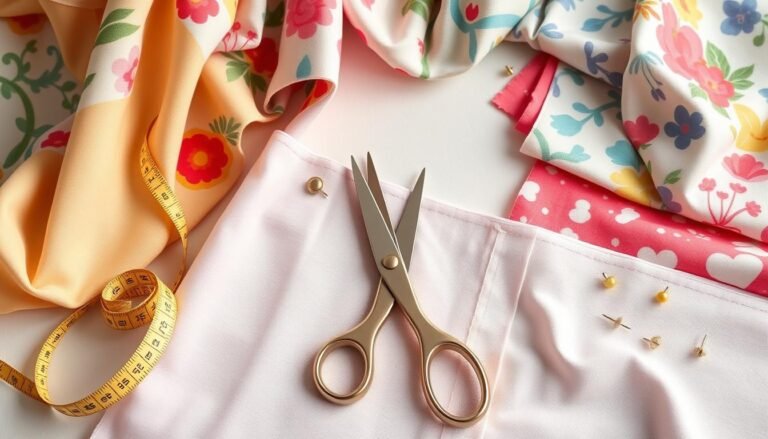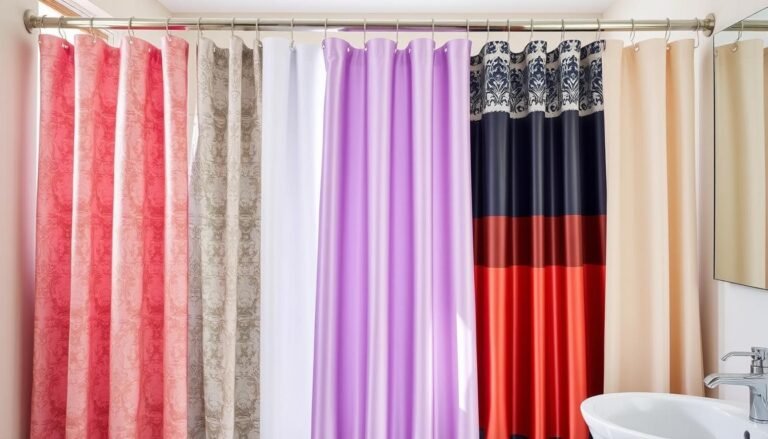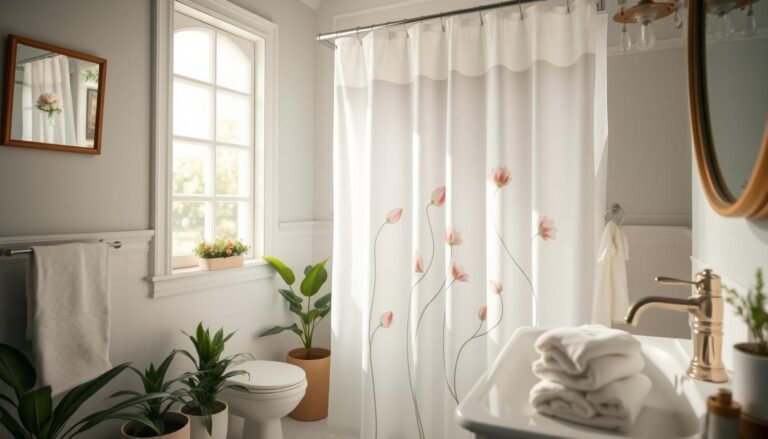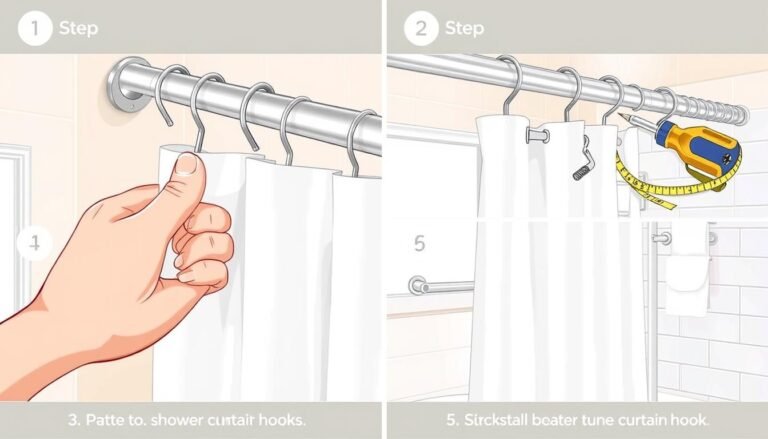Is Fabric Shower Curtain Good? Your Guide to Benefits
Benefits of fabric shower curtains are not just about looks. These curtains come in cotton blends, polyester, and microfiber. They offer a healthier choice compared to vinyl ones. They don’t have harmful chemicals like phthalates or heavy metals such as lead and cadmium. Alex Scranton, Director of Science & Research, talks about the need for safer materials. This cuts down harmful emissions in your bathroom. So, fabric shower curtains are great for those who care about their health.
Fabric shower curtains are also easy to clean. You can simply throw them in the washing machine. This keeps your bathroom fresh without trouble. They come in many colors and designs, too. So, you can easily find one that fits your taste. Whether you like simple colors or detailed patterns, a fabric shower curtain can make your bathroom look great.
The Benefits of Fabric Shower Curtains
Thinking about updating your bathroom? Consider the many perks of fabric shower curtains. They’re a popular choice in homes for good reasons.
Health and Safety Benefits
Fabric shower curtains are better for your health than PVC options. They don’t release harmful gases. The Center for Health, Environment & Justice (CHEJ) has found fabric curtains to be safer.
Aesthetic Appeal
Fabric shower curtains add luxury and style to any bathroom. They come in a variety of materials like cotton, polyester, and microfiber. So, you can pick one that suits your taste perfectly.
Environmental Impact
It’s important to think about the environment when choosing shower curtains. Fabric curtains are more eco-friendly than plastic ones. They’re durable, which means you won’t need to replace them often.
Fabric shower curtains are great for many reasons. They’re good for your health, look great, and help the environment. Check them out for a stylish and sensible bathroom upgrade.
How Durable is a Fabric Shower Curtain?
Fabric shower curtains can last longer than plastic or vinyl ones. Their durability comes from several important reasons.
Materials like cotton, polyester, and treated fabrics are often used. These materials are water repellent and can be cleaned in a washing machine. This makes fabric shower curtains tough against the moisture of a bathroom, unlike plastic curtains.
Yet, fabric shower curtains need regular washing to avoid mold and mildew. Their durability can change depending on how well they’re taken care of. Unlike vinyl liners, that may release harmful odors, fabric curtains like nylon and polyester are both safe and long-lasting.
For lasting durability, wash your fabric shower curtain as suggested and keep the bathroom dry. Over time, fabric curtains will need replacing due to wear and tear. But, many people find this a fair trade for their benefits. About 28% of customers pick them for being long-lasting and eco-friendly.
Their durability is a big plus in busy homes. How long they last depends on the fabric, how often they’re cleaned, and usage. Being easy to take down and clean makes them last longer and keeps customers happy.
In summary, choosing a fabric shower curtain is wise for those wanting looks, practicality, and durability in the bathroom.
Fabric Shower Curtain Maintenance Tips
Keeping your fabric shower curtain clean ensures a fresh bathroom. It’s key to regularly care for it. This extends its life and keeps it looking like new. Here are some easy-to-follow tips for fabric shower curtain maintenance.
Cleaning Fabric Shower Curtains
Effectively cleaning your fabric shower curtain is vital. Start by taking it down and checking the care tag. Most need a wash every month:
- Pre-Treatment: Apply Stain Solution on tough spots and let it sit for 30 minutes.
- Machine Wash: Wash it on a normal cycle with Signature Detergent. This removes soap scum and water marks.
- Drying: Dry it on low heat or hang in the bathroom. High heat can ruin the fabric.
Preventing Mold and Mildew
Stopping mold and mildew is key in caring for your curtain. Here’s how to keep it free from mold:
- Antimicrobial and Anti-Mildew Coatings: Opt for curtains with these protections to stop mold growth.
- Drying: Make sure the curtain dries fully after each use. A fan or open window helps air it out.
- Rotating Curtains: Switch between two curtains to make sure one is always dry, preventing mold.
- Weighted Liners: Use a weighted liner for better hang and less moisture build-up.
Learn more about proper bathroom cleaning for a clean and fresh space.
Fabric vs. Plastic Shower Curtain: A Comparative Study
When choosing between fabric and plastic shower curtains, think about materials, life span, and cost. Each type offers benefits and downsides, affecting your bathroom’s feel. Let’s explore their differences to help you decide.
Materials and Longevity
Fabric curtains add a touch of class with materials like polyester and Turkish cotton. Take the Parachute Turkish Shower Curtain, for example. Made of Turkish cotton, it’s high-quality but needs careful cleaning. On the other hand, Brooklinen’s curtain shrinks a bit after washing but remains tough.
PEVA curtains stand out for being mold-resistant and easy to clean. They don’t soak up water and are safer than PVC curtains, which release harmful chemicals. Despite PEVA’s durability and safety, fabric curtains offer a softness that PEVA can’t match.
Cost Considerations
Fabric curtains might cost more up front but are often more durable. Materials like cotton make a space look and feel better but may shrink a little in the wash. The Threshold Waffle Weave Shower Curtain, for instance, got smaller after washing but stayed strong. This makes fabric curtains a worthy investment in the long run.
PEVA curtains are more wallet-friendly and still bring lots of positives, like being waterproof. They’re cheaper and easier to maintain, making them a go-to for many. But, if you want a luxurious bathroom feel, fabric curtains could save money over time by lasting longer.
For more insights and related details, you might find this resource valuable: Do I Need a Patio Cover, exploring considerations that could influence your household-related decisions.
| Criterion | Fabric Shower Curtain | Plastic/PEVA Shower Curtain |
|---|---|---|
| Materials | Polyester, Cotton, Turkish Cotton | PEVA, Vinyl, PVC |
| Longevity | High, durable with proper care | Very high, resistant to mold and mildew |
| Cost | Higher initial investment | Generally lower cost |
| Environmental Impact | Eco-friendly if from natural/recycled materials | Chlorine-free, recyclable (PEVA) |
| Aesthetic Appeal | Elegant, available in various styles | Functional, generally simpler designs |
Is Fabric Shower Curtain Good? Weighing the Pros and Cons
Fabric shower curtains have many advantages. For example, they’re healthier and safer. They come in materials like polyester, cotton, and hemp. These materials are breathable and less likely to grow mold and mildew. A good choice is the OEKO TEX certified Organic Polyester Shower Curtain Liner by Parachute. It’s free from harmful chemicals, perfect for those who are health-conscious.
Fabric curtains also look better. They are available in many colors, prints, and textures. This lets you match them to your bathroom decor easily. They keep heat well, giving your bathroom a warm feel in cold months. There are many fabric and hookless designs, making fabric curtains a flexible option.
Fabric curtains are also good for the planet. They’re often made from sustainable materials like organic cotton. This makes them an eco-friendly choice. Polyester and cotton are durable and can be washed, reducing waste. To learn more about the best shower curtain for you, check out this guide.
But, fabric curtains have some drawbacks. They’re usually more expensive and need a liner to keep water out. You need to clean them regularly to avoid mold and mildew. Still, their benefits like lasting longer and looking great can outweigh these issues. If you know what to expect, you can choose a curtain that looks good and is practical.

Hey there, I’m Alex Hanson and I’m passionate about all things covers! Whether you’re looking for a car seat cover to protect your vehicle or an oven cover to keep your kitchen clean, I’m here to help. With years of experience in the industry, I have plenty of knowledge and insights to share with my readers. So, if you care about protecting your belongings and making them look their best, you’re encouraged to read my blog as I explore the perfect cover for every need.

